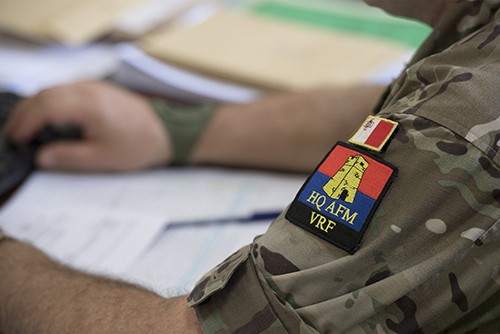
‘Malta’s hard-earned neutrality, which is a bedrock of our Constitution, was conceived first and foremost for dark times like these.’
These words can be found in an open letter sent to the Prime Minister and Home Affairs Minister in response to reports that Malta may be participating in the EU Naval Operation in the Red Sea. Not with a warship or boarding teams, mind you, but with a single staff officer at the Operational HQ in Greece. The signatories to this letter include NGOs and individuals. Among the latter are the Labour and union relics Marie Louise Coleiro Preca and Sammy Meilaq.
This particular letter is wrong on so many levels that it is hard to know where to begin. Let us start from our ‘hard-earned neutrality’. Rather than being part of the ‘bedrock of our Constitution’, it was actually a Johnny-come-lately amendment added 23 years after the Constitution was initially drafted. Hard-earned it was: it was one of the concessions demanded by Karmenu Mifsud Bonnici in return for accepting that the simple democratic concept of majority rule (so recently misquoted by the PM in reference to the selection of the next President) should also be enshrined in our basic law.
Until that time, Malta had been anything but neutral. Perhaps the persons mentioned above have forgotten the supply of weapons and military instructors by North Korea? Or the presence of Libyan military personnel and helicopters in Malta? Or our renewed love affair with the Italian military as soon as our relationship with Libya broke down over oil exploration rights? All of these happened while they were intimately involved in the politics of our island.
The neutrality added to our Constitution was a poorly-drafted, dated concept that referred to two superpowers. Nobody at the time had the imagination to conceive that, less than a decade later, one of those superpowers would lie in ruins.
Now the neutrality clause has become something else. It has become a shield, not against external aggression, but against the need to stand up and be counted and to speak out in favour of what is right.
Back to the letter. The signatories are certainly playing the role of useful idiots for the Houthis and their Iranian overlords. How attacking shipping in the Red Sea materially contributes to alleviating the suffering of the Palestinians in Gaza and beyond is unclear but tying the two issues together certainly sounds good in certain quarters. The reality is that the attacks are indiscriminate and intended to generate regional instability, nothing more, nothing less. The fact that the perpetrators of these attacks are responsible for the deaths of thousands of innocent civilians in Yemen should not and does not justify Israeli actions against Palestinian civilians. But neither should it be forgotten. Nor should the fact that innocent seafarers are having their lives and livelihoods put at risk, regardless of whether they are carrying ammunition, washing machines or grain intended to feed the starving.
One of the most recent Houthi attacks targeted a ship carrying food aid to Aden. Unlike the persons who put their name to this letter, I have recent experience of working in Yemen and am keenly aware of the abject misery and hunger that stalks the majority of the population. But apparently safeguarding the shipping that feeds hungry mouths is in violation of our Constitution. The same disruption has impacted food supplies to the needy in Sudan and across the region. These are not supplies that can conveniently be dispatched around the Cape of Good Hope.
Neither, apparently, should we lift a finger to prevent vessels loaded with oil and other dangerous cargos from being sunk in the shallow waters of the southern Red Sea. Yes, such pollution will plunge coastal communities that depend on fishing into even greater misery. But apparently that is acceptable as long as we respect a bunch of long-defunct and dishonestly drafted words in our Constitution.
Sitting in ivory towers, penning grandiose letters that cite constitutional issues is very easy. But it betrays an absolute disconnect of the writers from the real world.